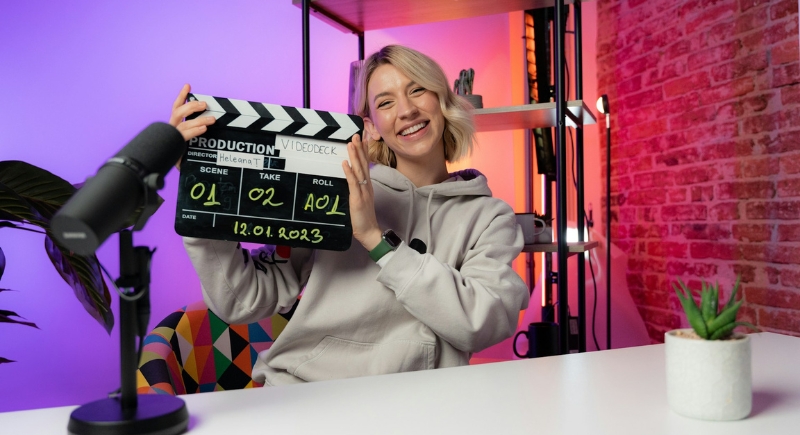Woman Who Fell in Love with Her Psychiatrist Leaves the Internet Divided
A 36-year-old ADHD coach from Arizona has sparked fierce debate across social media after sharing her story of falling in love with her psychiatrist. Kendra Hilty’s multi-part TikTok series, spanning over 25 videos, has generated millions of views and divided the internet into two camps: those who see her as a victim of professional manipulation, and those who question her mental state and motivations.
The Story That Started It All

Image via FreePik
The simple appointment to get back on ADHD medication in her late twenties evolved into what Hilty describes as a four-year psychological manipulation. There are no minced words here. She has mentioned the first name of the psychiatrist in a now-deleted video, and things are getting heated.
In her viral TikTok series, she recounts how she “Googled psychiatry” in her city and chose the first practitioner who appeared—a decision that would fundamentally alter her life.
“I fell in love with my psychiatrist, and he knew. He kept me until I had the strength to leave after four years,” Hilty told her millions of viewers. During their first intake session, Hilty noticed her psychiatrist was “pretty attractive” and roughly her age. “He made me feel like I was his friend,” she explained in one video. “He was really funny and cracked jokes. Of course, I loved the attention I got from him.”
The Alleged Pattern of Manipulation
According to Hilty’s account, the blurring of boundaries began subtly. By their third session, conducted over Zoom, she asked to call him by his first name, and he granted her request with what she now describes as smugness. “And then he just started turning up the volume on us being friendly,” she said, describing how their monthly sessions became less clinical and more personal.
She claims he stopped asking routine psychiatric questions after the sixth session and instead engaged in lengthy conversations about her personal life. The most explosive allegations center around what Hilty characterizes as deliberate psychological manipulation. She describes a pattern of “intermittent reinforcement.”
That refers to the fact that there were sessions where he would be “warm and kind and wonderful,” followed by appointments where he was “cold and clinical and detached.” “It made me work harder in our next sessions,” she admitted. “And it started the addiction that I had to him 100%. And he knew exactly what he was doing.”
Professional Voices Weigh In

Image via Unsplash/Vitaly Gariev
The story has drawn significant attention from licensed mental health professionals, many of whom express skepticism about Hilty’s interpretation of events.
“My heart hurts for the psychiatrist. He can’t even defend himself from this,” wrote one clinical psychologist on Reddit who highlighted the ethical constraints that prevent the practitioner from publicly responding due to HIPAA regulations.
Multiple therapists have pointed out that transference is a big theme of this story, which refers to patients developing feelings for their providers. They note that it is a common occurrence that doesn’t necessarily indicate professional misconduct.
“Romantic transference happens,” explained one female therapist. “Clients also wish I were their friend, sister, or mother. I make room for it all and recognize these are projections of seeing me in an idealized lens.”
The AI Factor
Perhaps one of the most noteworthy aspects of Hilty’s story is her reliance on ChatGPT, which she anthropomorphized as “Henry.” She uses the AI chatbot as a confidant and pseudo-therapist to discuss her feelings for her psychiatrist and seek validation for her interpretations of their interactions.
“I would just talk to Henry about how obsessed I was with this man,” she explained while revealing how the AI became integral to building her “case” against her psychiatrist.
Mental health professionals have expressed concern about this AI dependency, with one noting, “She isn’t processing these things in therapy because she is using ‘Henry’ as therapy… I honestly wonder how much of this was sparked by her use of AI as a therapy stand-in.”
The Monetization Controversy

Image via Unsplash/Videodeck.co
To add another layer to the controversy, Hilty has capitalized on her viral fame by joining TikTok’s Creator Fund and offering paid subscriptions for $2.99 per month to access live chats. She’s also expressed openness to potential TV or movie deals based on her story.
“If a producer came to me and said, ‘I want to invite you to help us make a movie or a television series about this,’ I’d say yes,” she told media outlets. “Because clearly I’ve struck a nerve.”
This commercial aspect has drawn additional criticism from those who view her story as exploitative rather than educational.
The Professional Fallout
The consequences for the unnamed psychiatrist have been severe. Despite Hilty’s claims that she doesn’t want to “ruin his career,” internet sleuths have identified and doxxed him.
“I’m horrified that people are putting the psychiatrist’s photo, full name, and family information. I couldn’t even find that. You guys are intense,” Hilty admitted, though she continues to share her story.
Mental health professionals predict legal action is inevitable. “This will end up in court with him seeking a cease and desist because this is technically harassment, and could veer into slander/defamation territory,” one commenter noted.
Looking Forward
As Hilty continues to share her story and face both support and backlash, several questions remain unanswered:
Will legal action be taken against her for defamation?
How will this case influence professional guidelines for handling transference?
What are the long-term implications for both individuals involved?
This story is complex and nuanced, sitting at the intersection of mental health treatment, social media virality, and the court of public opinion.